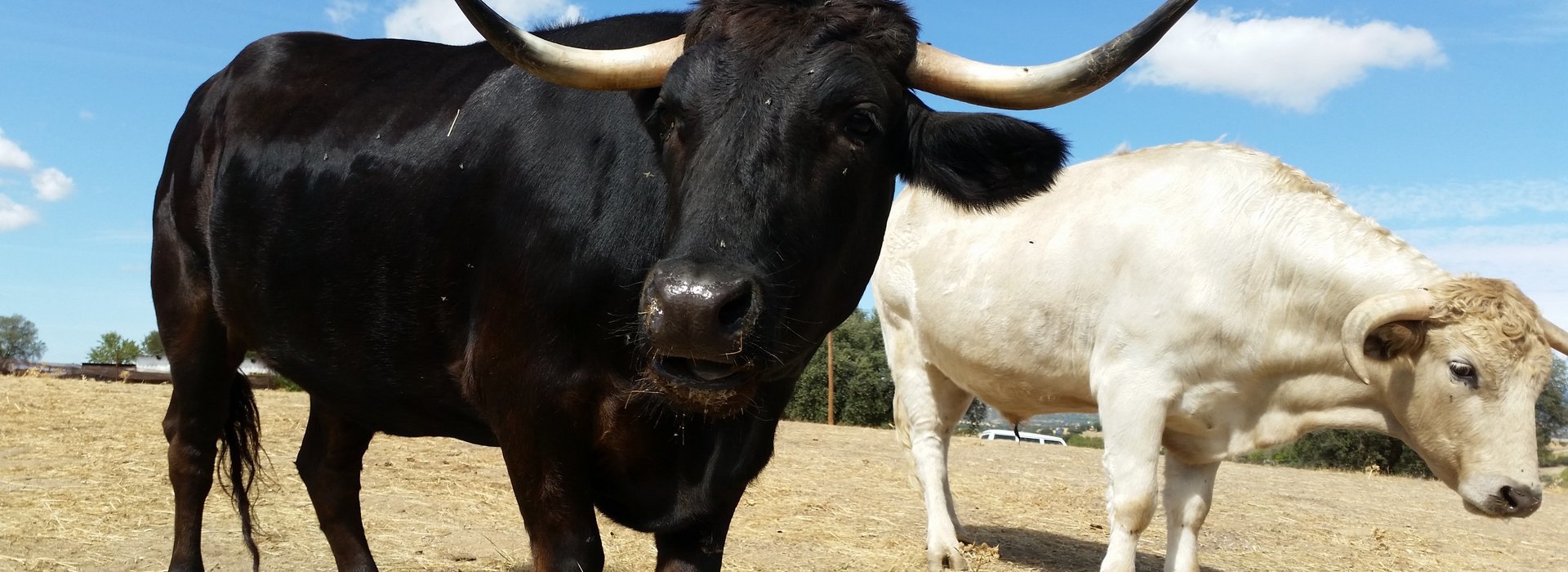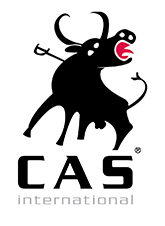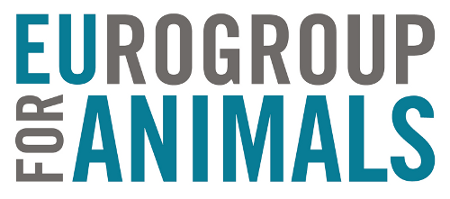CAS International files a complaint with the European Commission about the killing of fighting bulls
24-10-2023CAS International has made a complaint with the European Commission about Spanish regulations that consider the killing of bulls in the bullring, at bull festivals and at bullfighting schools as emergency slaughter. The Spanish regulations are an incorrect implementation of EU rules, allowing the bullfighting sector to abuse rules intended for production animals and in that way market the meat from killed bulls in the European Union with food safety risks. That means also that meat from animals killed during a bullfight can be sold in European supermarkets.
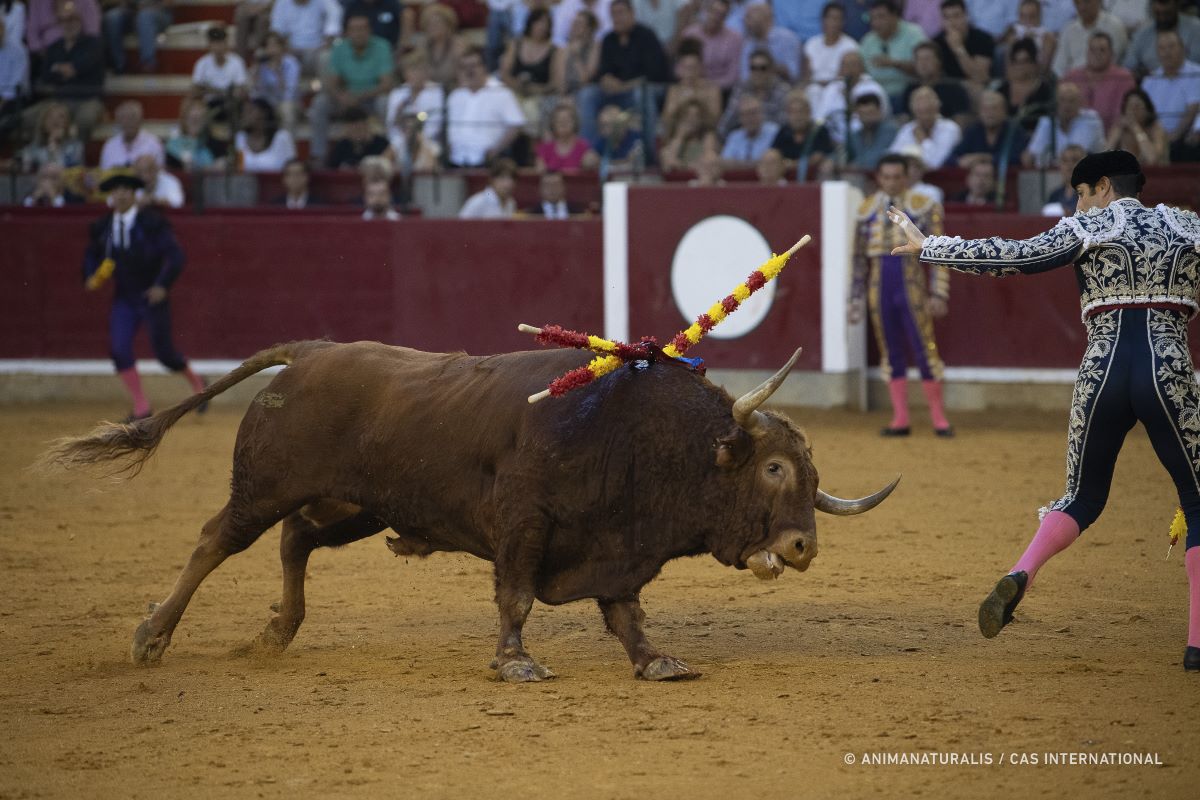
Bullfight in Zaragoza, October 2023 | Picture: CAS International & AnimaNaturalis
In the European Union, rules for the killing of animals intended for human consumption are centrally laid down in “Regulation (EC) 1099/2009 on the protection of animals at the time of killing”. It was already known that the meat of fought bulls (bulls that have been killed in bullfights) is offered for human consumption. The killing of these bulls does not have to comply with the rules set in the relevant Regulation, because it includes an exception for animals killed during cultural, traditional or sporting events.
Emergency slaughter
However, Spain has made legislation through the “Real Decreto 1086/2020” which considers the killing of bulls fought in the bullring, at a bull festival or at bullfighting schools as a so-called emergency slaughter. The rules for emergency slaughter and the conditions under which it is permitted are laid down in the European “Regulation (EC) 853/2004”. In Annex 3, Section 1, Chapter 6 of this Regulation, emergency slaughter is described as follows: “The slaughter (outside a slaughterhouse) of an otherwise healthy animal that has suffered an accident and for welfare reasons cannot be transported alive to the slaughterhouse”. To carry out an emergency slaughter, three conditions must be met, namely:
- The animal must have had an accident (1)
- The animal must be healthy at the time of the accident (2)
- The animal is not suitable for transport for welfare reasons (3)
Emergency slaughter is therefore intended for the killing of animals outside the slaughterhouse for human consumption, when those animals can no longer be transported to the slaughterhouse for welfare reasons.
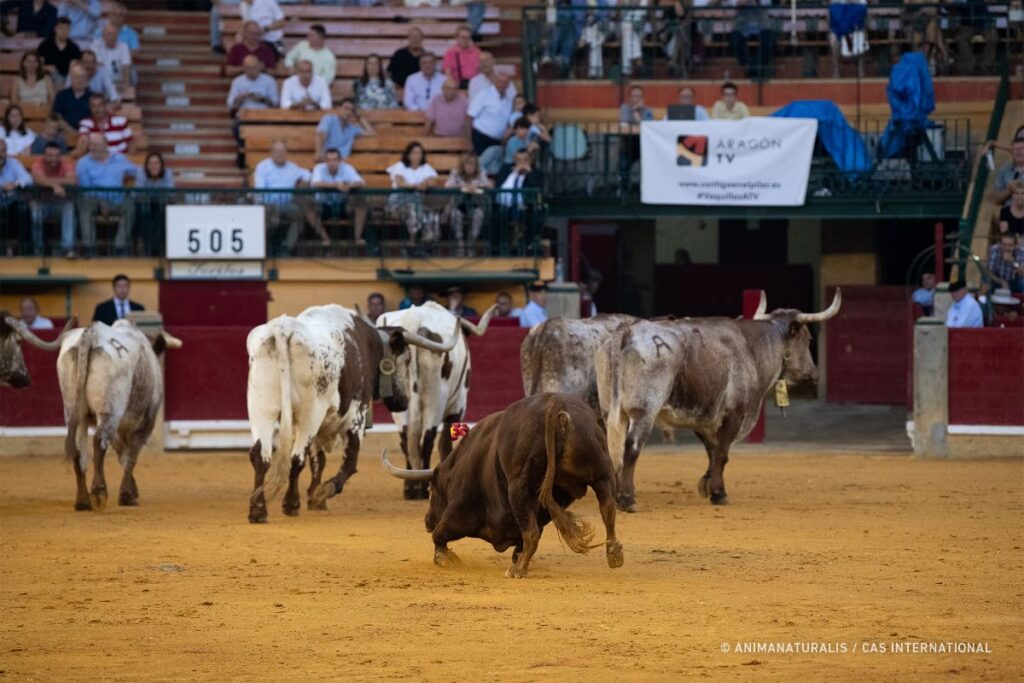
Bullfight in Zaragoza, October 2023 | Picture: CAS International & AnimaNaturalis
Conditions
It is clear that at least the first condition is not met. This is not an accident, but an intentional injury and abuse of an animal. In addition, Spain also makes the rules even more flexible than allowed under EU rules. For example, the ante-mortem inspection, which must be carried out by a veterinarian and is necessary before emergency slaughter takes place, may be omitted and therefore no reason for emergency slaughter needs to be given. Instead, the bulls are inspected by a veterinarian while they are still at the farm of origin and before they are transported to the bullring. This means that condition 2 is not met either.
Because the animals are no longer assessed alive by a veterinarian between leaving the company and being killed in the bullring, there are also risks to food safety that can arise during transport and in the bullring, before and during the fight. Maite van Gerwen, Director of CAS International
“Spanish regulations ensure that the bullfighting sector can have it both ways, so to speak. On the one hand, they can do whatever they want with animals under the argument of culture and on the other hand, they benefit from the possibility of also marketing the meat within Europe under more flexible conditions than those that other meat producers have to meet.”
It is even worse that there are veterinarians who participate in this by carrying out the ante-mortem inspection on the farm and therefore omitting this in direct relation to the emergency slaughter. They then only perform the post-mortem inspection, after the animal has already been killed. A different procedure is therefore carried out than that prescribed by European regulations. According to EU rules, the veterinarian must decide whether the conditions for emergency slaughter are met at all and must indicate the reason for the emergency slaughter on a special form.
Complaint
In the complaint with the European Commission, CAS International indicates that the Spanish “Real Decreto 1086/2020” is an incorrect implementation of the European Regulation (EC) 853/2004. The European Commission must now process and investigate the complaint. This may take a long time, but ultimately it will hopefully lead to Spain having to adjust its legislation. It cannot and should not be the case that the Spanish bullfighting sector wrongly uses European rules intended for production animals, thus avoiding regulations regarding animal welfare and food safety and compromising both these aspects.
Help us so we can continue with our impactful campaigns! Become a sponsor or make a donation.




